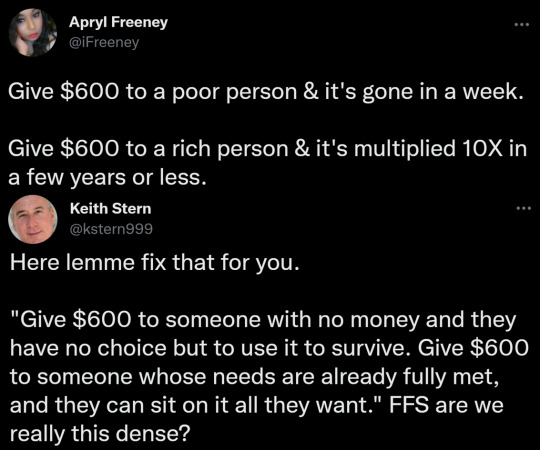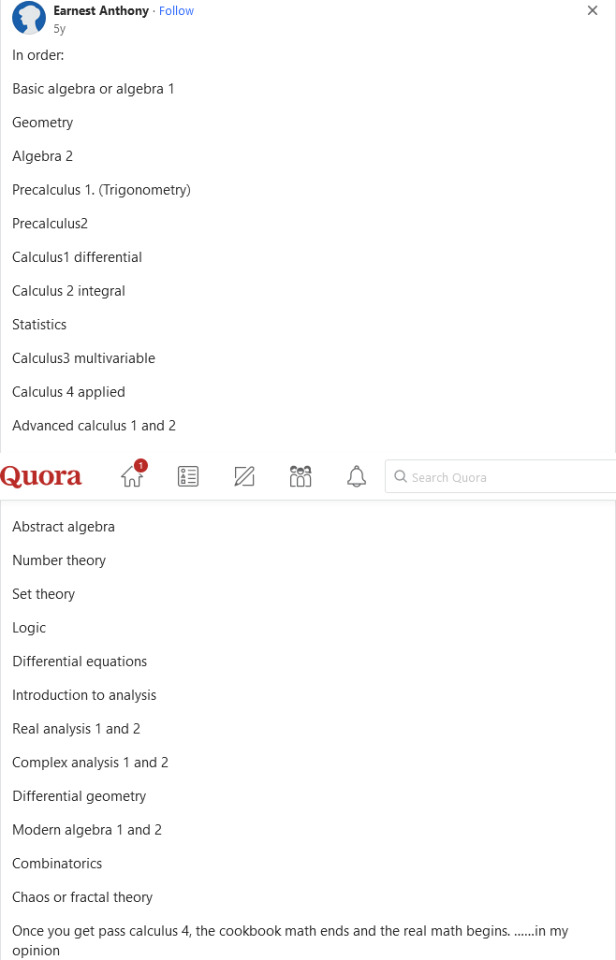#relearningthemachine
Explore tagged Tumblr posts
Photo
^^^^

So poor people don’t deserve to have money?!
115K notes
·
View notes
Text
Computer Networks - A Systems Approach (Peterson & Davie, 2012)
Title: Computer Networks: A Systems Approach Authors: Larry Peterson and Bruce Davie Copyright: Elsevier, 2012 Source: https://github.com/SystemsApproach/book License: CC BY 4.0
Due to finding Neocities through a recommendation on Twitter, I’ve started looking up and found out about IPFS. Since my knowledge on networks is lacking, I will then be starting yet another book provided by the lovely Open Textbooks Library, Computer Networks - A Systems Approach.
Going past the forewords, I would like to take note as to why Peterson & Davie went for a ‘systems approach‘ when discussing computer networks.
They explained it simply as thus:
“you need to look at how the components of a system interact with each other to achieve an overall result, rather than simply optimizing each component“
And in the context of networking itself, they aim to highlight more of how the Internet works as of recent.
0 notes
Text
Principles of Microeconomics (2014)
Read here
As I’ve explained in the first post on Principles of Macroeconomics (2017), I’ll be now focused on its accompanying book, Principles of Microeconomics (2014).
Again, it has the same intro as the one in the macroeconomics book. For this one, I’ll discuss the next section.
These are the key concepts of the section:
Microeconomics - focuses on studying the actions of individual agents within the economy, especially the subjects on the theory of consumer behavior, the theory of the firm, how markets for labor and other resources work, and how markets sometimes fail to work properly
Macroeconomics - focuses on studying the economy as the whole, especially on examining countries’ success in achieving the following goals: growth in the standard of living, low unemployment, and low inflation
Monetary policy - a series of actions done by a nation’s central bank including policies affecting bank lending, interest rates, and financial capital markets
Fiscal policy - a series of actions done by a nation’s legislative body that includes government spending and taxes
0 notes
Text
Principles of Macroeconomics (2017)
Read here
On a whim, I would like to touch up on the concepts of economies today. So, I’ll be reading through this book on macroeceonomics.
We’re on the first chapter and here’s a few keywords needed to understand:
1. economics - “the study of how humans make decisions in the face of scarcity“
2. scarcity - “human wants for goods, services, and resources exceed what is available”
It then explains the introduction of the division and specialization of labor that was first conceptualized by Adam Smith in The Wealth of Nations.
Division of labor is then defined by Smith as “the way one produce a good or service is divided into a number of tasks that different workers perform, instead of all the tasks being done by the same person.“
The book then cites Smith’s reasons for opting for his concept:
1. Having specializations for a small job can help bring in workers who are compatible in doing said small job
2. Compatible workers of small tasks can then “produce more quickly and with higher quality”
3. Building specialized businesses in peforming small jobs can allow them to reduce the cost of their intended output
Smith’s idea has enabled us across the world to gain access for various goods and services.
The book then proceeds to explain the importance of studying economics as a whole. Simply put, it is analyzing the decisions of people and how it will affect scarcity at a certain period of time.
0 notes
Text
Misc thoughts 6
https://www.youtube.com/watch?v=L5K5DAP5ODE
I know I haven’t studied coding for a few days now but I have other obligations for self-care that I need to fulfill.
[Also it was a relatively hot and humid day so my attention span’s worse off than usual.]
Meanwhile, I have been watching the video I’ve linked above and the first part about it talks about a company that holds PAID in-person group sessions that everyone can “make friends at“ and “hold conversations.“
My overall response to this service are of two things:
- what thing hasn’t been commodified to twist it into some corporeal shill of “being human”
- a better alternative is to choose one series, dive into its fandom, keep in touch online, plan in-person meetups !!!
And in this economy? Are we that disillusioned that we can only ‘make‘ friends through paying through a service? Just as KeyasWorld says during this stream, “so what, they’re your friends until you run out of money while using this service?“
I shudder to think of something like that to happen where I’m living in.
1 note
·
View note
Text
Misc thoughts 5
https://www.youtube.com/watch?v=7XPmPax60bA
Interesting thoughts from Linus.
I do agree with his thoughts about the media should not put us into buckets based on a group of demographics too often. However, he did talk about the idea of the millenial pause through one of these articles, which people would include a “half-a-second pause” in the beginning of the video. It was due to some people not trusting that the device has started recording so the pause was there to give the device time for it to start to record.
They go into an in-depth discussion about what said media portrays between generations. If anything, the older generation had better job security compared to the younger generation (US).
Oh gosh, do I wholeheartedly agree with their opinions regarding the gig economy, real estate, grocery prices, and being “praise-hungry.“
0 notes
Text
Misc thoughts 4
While I was discussing my programming process with my friend, they told me that coding on the back-end in a creative manner is more about finding the most elegant solution. If it has been found, most would scramble and rework a bit and change the variables to submit a “unique“ answer.
[Edit: typos, note to self, get new keyboard]
0 notes
Text
Stemmler Notes 3
[Previous page] [Next page] [Go to the beginning]
Last week, I’ve learned about creating software is about creating one that is flexible to adjust to user’s needs.
Then, I covered Stage 1 out of 9: the concept and practice of clean code.
Next, is Stage 2: Programming Paradigms
Before we dive into the article, I would like to quote the definition of paradigms:
According to Merriam-Webster, it is a theoretical framework of a certain object.
So in this context, a programming paradigm revolves around the frameworks about tackling how to design software.
Back to Stemmler, he glosses the three main ones as the following (and paraphrased to my pleasure as):
Object-oriented programming - parts of a software are designed in such a way that they can all interact with each other interchangeably
Functional programming - parts of a software are designed in such a way that they will interact regardless of input and who has control
Structured programming - parts of a software are designed in such a way where one part has to interact first before the next one has to
(Object oriented and structured programming is something I have covered before when I was studyiing, however, Functional Programming is something I have never heard before, I’ll have to look this up later.)
Stemmler then asserts that the ideal software uses a mix of all these three at once.
This was short and sweet, however, I would need to look up the following resources to get my head spinning and all:

And now...to turn the next page...
0 notes
Text
Exercism part 2
Did two exercises today: Log Levels and Micro Blog
Both were under the Strings track and I was stuck on Log Levels for awhile due to coding errors on my end. Finished it within the hour though.
Micro Blog..I’ll return to it because manipulating streams feels like a different league and my brain turned into mush when I attempted to understand the concept in general.
(Also shorter code syntaxes make my brain hurt too...gah)
[Post Edit: I’m tackling blackjack and squeaky clean tomorrow]
And now...to turn the page...
0 notes
Text
Misc thoughts 3
We’re back from the weekend!
Time to get back to relearning the machine!
0 notes
Text
Misc thoughts 2
This blog has been fully reactivated! Currently using https://www.tumblr.com/theme/41084 by https://nick.tumblr.com/
Thank you so much!
0 notes
Text
Weekend post 1
It’s the end of the week! Time to wind-down and recover.
Posts will continue next week.
0 notes
Text
Misc thoughts 2
While browsing the web for resources on learning math, I found the correct order from this question https://www.quora.com/In-what-order-should-I-learn-math-from-basic-algebra-to-advanced-topics

(Covered by the Quora bar is history of mathematics followed by linear algebra 1 and 2 before abstract algebra)
Then I found this nice resource https://open.umn.edu/opentextbooks for me to start reading. Heck, I can try revisiting other subjects too!
As it is the end of the weekday, this ends my relearning for now. Time to rest and recharge for my first week in earnest!
0 notes
Text
Misc thoughts 1
Any resources that I can browse online to learn Algebra, Trigonometry, and Calculus? I prefer reading and I would not want to watch videos on the subject. Thanks~
0 notes
Text
Exercism - Java 1
Due to seeing one of their emails in my inbox, it’s time for me to learn how to code in certain languages first before diving into the harder stuff.
I then re-linked my Github to Exercism and dived into Java.
After redownloading the “Hello, World!“ activity due to a gradle oopsie on my part (did not follow their instructions to use gradle after going to the exercise’s folder on my system), I did it and done two exercises under Basics and Booleans.
I just downloaded the first of many exercises for their Strings module. Wish me luck.
And now...to turn the next page...
0 notes
Text
Stemmler Notes - 2
[Previous page] [Next page]
Stemmler introduces what his definition of software is, its massive scope, and its atomic elements. Now, we tackle each element in the stack, starting from the bottom up.

What is clean code?
He says that clean code means creating a software that can be adjusted to keep up with user needs. The answer to the question earlier can vary, but he thinks it falls between the following criteria:

(Personal note: ‘growth mindset’) He then explains that your mindset contributes to clean code because you have to care enough on the software you are working on to maintain it. Fair.
He then drives the point that you, the programmer, is not creating software only for its end users. This creation is also for its current and future maintainers. Meaning, this involves knowing the difference between the good and bad design of the software.
He then suggests the following resources for further reading:

Sir Martin’s work, Clean Code, is what he recommends amongst this list.
And now...to the next page...
0 notes